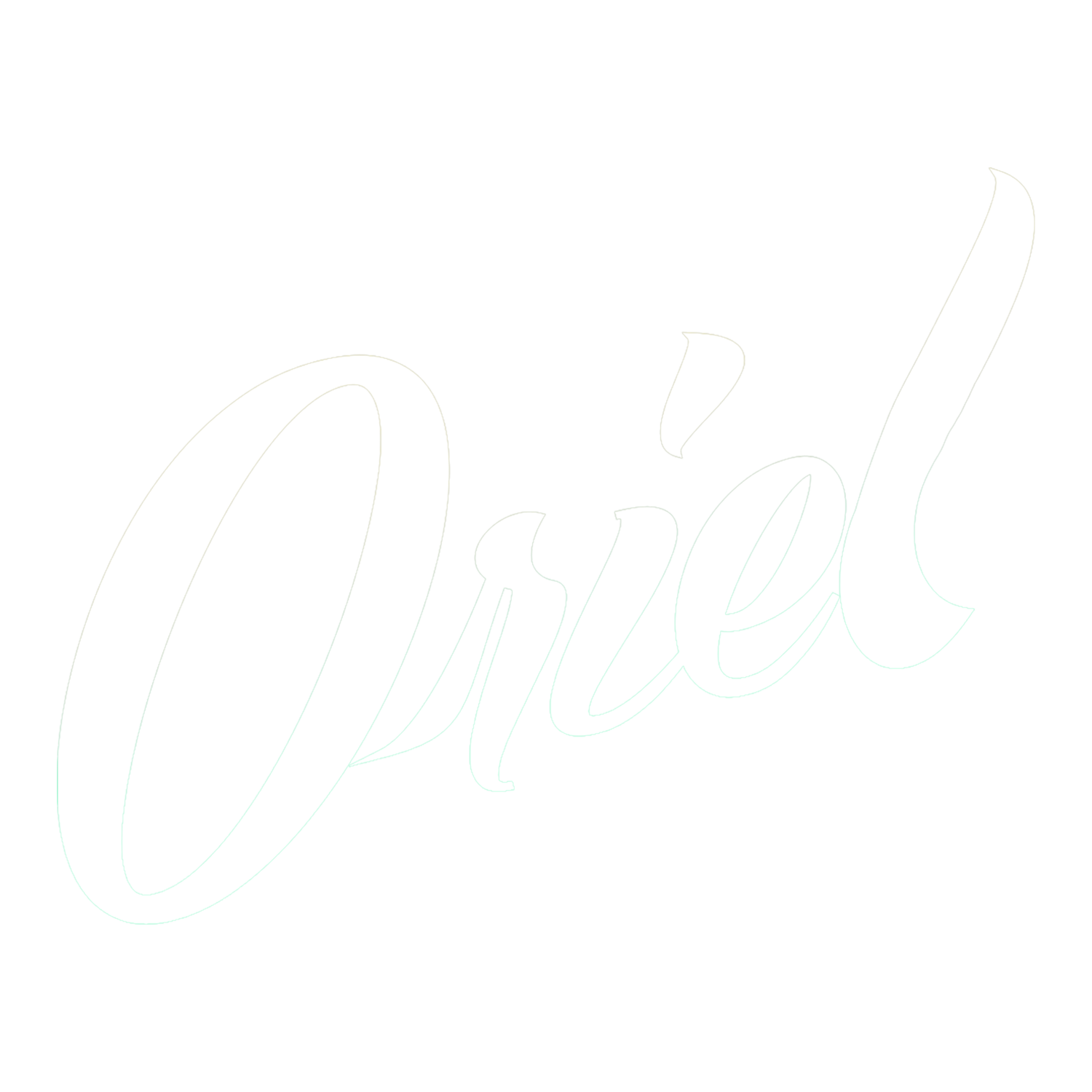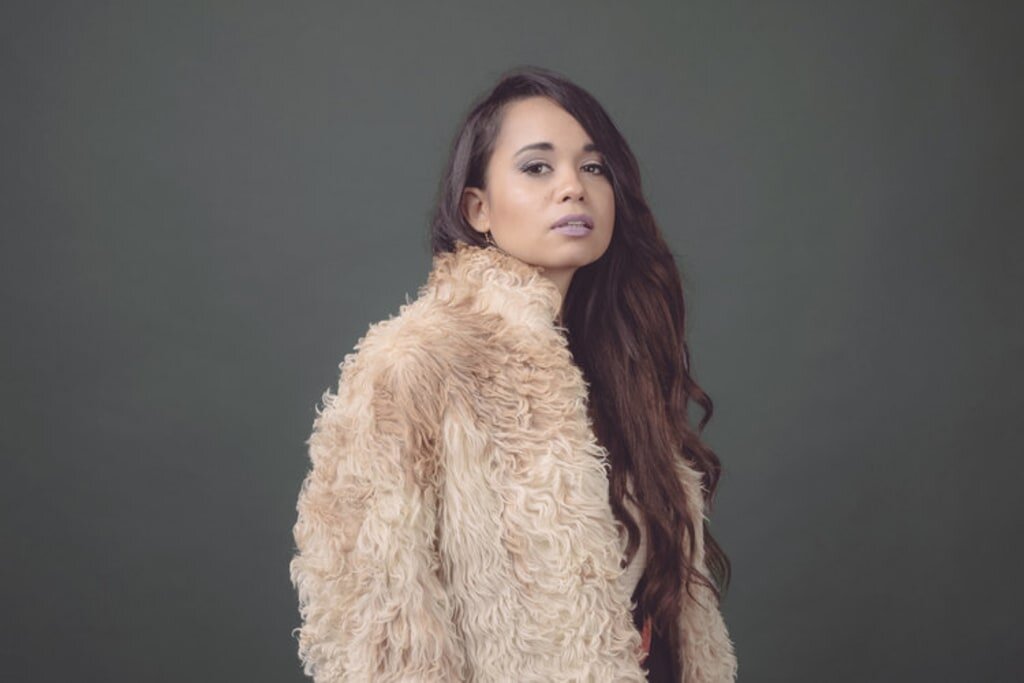Interview with Emerging Artist Oriel Poole
An Interview with Emerging Artist Oriel Pool
Oriel Poole is redefining the music industry and blurring the lines across genres; we sat down with her to hear about it all.
If you have yet to hear of the "electro-soul siren" Oriel Poole, you're in for a treat. Based in Los Angeles, California, Poole is carving a niche all her own with music that blends R&B, synth-pop, and electronica. She's primarily self-taught, and that comes through in her music in the best way possible. It's passionate, authentic, and unafraid to challenge the norms set up by the music industry.
The staff here at Beat sat down with Poole, learning about her creative process, influences, and experiences. Learn more about Poole and her rising music career in our interview below.
Beat Staff: Tell me a little bit about your history in a design field and how it informs what you do now.
Oriel Poole: My background in design led me to become diversified in many fields. I gained experience working with a high-end hospitality design firm, a luxury wedding designer, and as a design director for an event production company. This series of events later lead to me to freelance in the music event industry—designing and installing dressing rooms, managing artist hospitality for festivals, and being a liaison for talent backstage at concerts. My last full time position was working as the design assistant for a big time production designer—designing art installations and touring stage designs for renown electronic musicians.
Everything I have ever learned has shaped who I have become. My work ethic, creative approach, and practical experience dealing with talent, managing teams, and executing productions has played a role in my performance today.
Creatively, there are so many overlaps between being a designer and a musician. Both are expressions of the same idea; one is visual, while the other auditory. There is an intent going into the arts, an atmosphere created, and a feeling left behind. Being a creative professional is mastery of balance, channeling the chaos of the heart and mind into a clear expression that others can relate to.
Visual elements can also translate to musical components. Just as I would see a pattern, form, function, symmetry, solid, void, contrast, and scale— my brain analyzes music in the same way. I apply a lot of my prior education in design and experience in the design industry to the way I create music.
What does Sunday mean to you? Why is it the title of your breakout EP?
Sunday is the day I was born. Realizing that I wanted to pursue music professionally was in fact my rebirth, a becoming of who I really am. Therefore, the birth of my debut EP was titled Sunday.
What was it like recording a song with Lotus?
While attending college in Philadelphia, Lotus was one of my favorite bands. I was very excited when they reached out to collaborate on the song “Anti-Gravity.” The offer came unexpectedly; they heard a song I did with Thriftworks called “Someone,” which inspired them to contact me. They were in the process of producing Eat the Light, a collaborative album with a guest vocalist on every track.
The collaboration was effortless. They sent me a track they’d been working on and I recorded the vocals on my own. It was the first time I’d ever been given a song with the melody already written. Lotus composed “Anti-Gravity” as more of a pop song, but considering they are a live electro-funk band, the melding of the two styles was quite an exciting match!
“Brighter” is one of the first songs you ever wrote. How old were you when you wrote it and realized this was the path you were meant to take?
A radical shift in my reality hit in my mid-20s and decided to do music professionally. It was during the Great Recession, the circumstances of a challenging work climate lead me to create music on with the side. Many of my friends took a liking to what they heard and encouraged me to consider a career in music, but at the time I did not see this as a practical pursuit.
You see, I graduated from one of the top design schools for interior architecture and design—my intention was to become a successful designer. However, during the recession, I could not secure stable work, and despite my efforts, I felt like the world was pushing against me. The number of obstacles I encountered led me to realize that no pursuit of a dream was a "safe" option. However, I did not desire safe; I desired fulfillment. I had to go after what my heart was calling for the most.
It was in that moment I realized the obstacles of the design industry and music industry were equally weighted in challenge. So when I connected to my inner most desires, I knew that pursuing music was my ultimate calling—moving forward, it had to be a primary component in my life.
When your heart is committed to a life worth living, there are no obstacles in the way. That realization changed everything for me. I had something that people wanted and it gave me so much joy. It was then I decided to leave the East Coast and begin my next chapter in California. I took what little money I had, signed up for my first music production course to learn the production software Ableton, and wrote my first song, “Brighter.” From the creation of “Brighter,” I decided to launch a Kickstarter campaign that managed to fund my entire EP.
The title of the song “Brighter” is symbolic of the light that we all hold within us. If you don’t fuel that fire inside you, it’s just going to burn out. I felt like I’d spent my entire life neglecting the light within me and I was finally going to listen to it speak, tend to the fire, and share it with the world.
This entire experience of self-discovery, the move cross country, the first song, which later funded the entire EP, showed me that life’s obstacles were no longer pressing against me. In following my heart, I am supported to pursue my ultimate path.
What was the writing process like for your EP album; did you start with the melody or the lyrics?
The creation of “Sunday” was very much an experiment. If you listen to the whole EP, you’ll notice that every song is stylistically and sonically different. Before the start of each song, I randomly defined a BPM, key, and musical mode—then wrote the music, lyrics, and melody within those parameters. The idea was to get out of my comfort zone, but the funny thing is that since I was relatively new to music, I didn’t really have a comfort zone.
My only real comfort zone was the range in my voice. “Brighter” is where I feel the most at home, but all of the other songs on the EP were explorations of new uncharted territory, all songs that are different facets of me as an artist.

